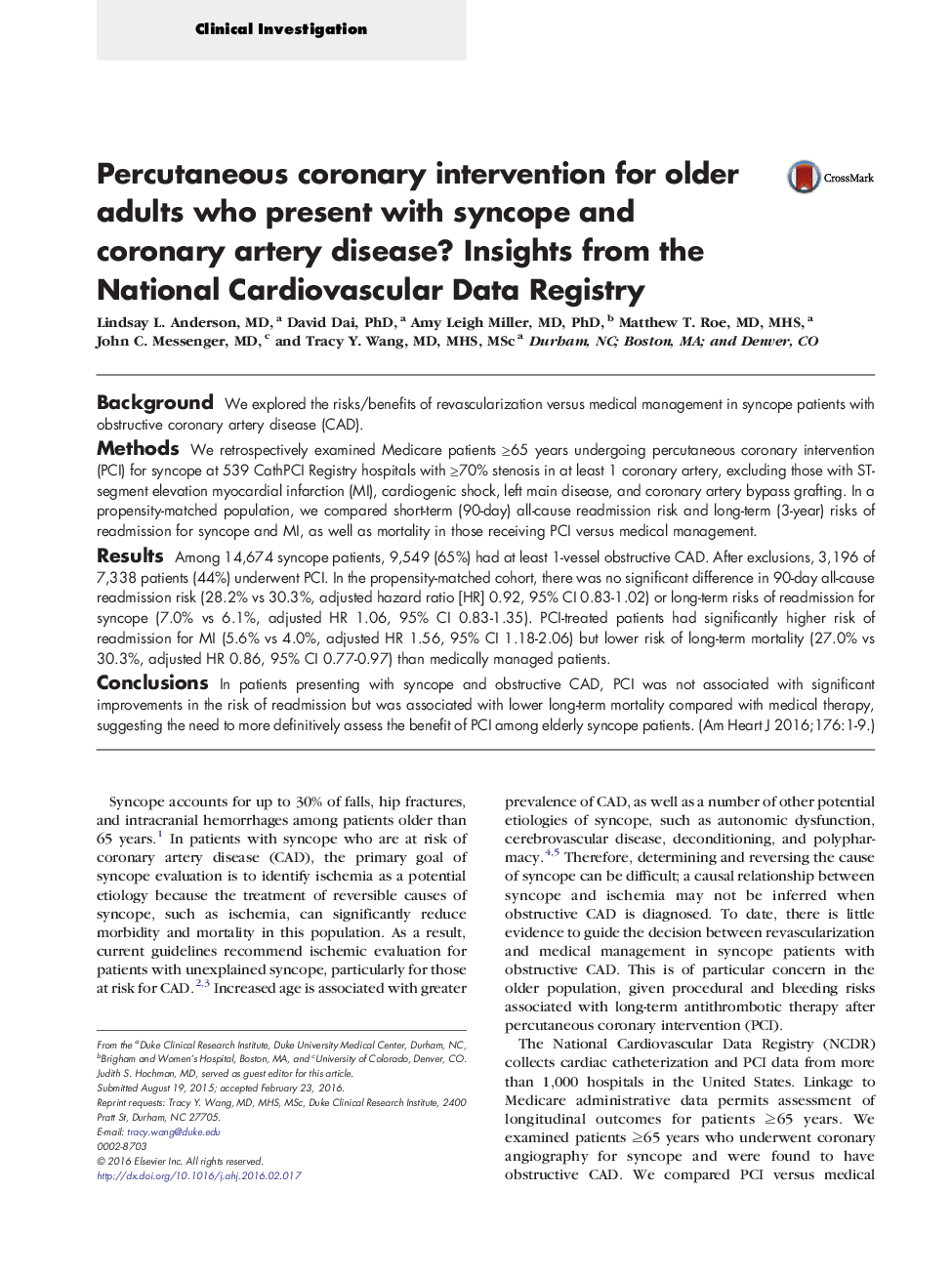| Article ID | Journal | Published Year | Pages | File Type |
|---|---|---|---|---|
| 5927654 | American Heart Journal | 2016 | 9 Pages |
BackgroundWe explored the risks/benefits of revascularization versus medical management in syncope patients with obstructive coronary artery disease (CAD).MethodsWe retrospectively examined Medicare patients â¥65 years undergoing percutaneous coronary intervention (PCI) for syncope at 539 CathPCI Registry hospitals with â¥70% stenosis in at least 1 coronary artery, excluding those with ST-segment elevation myocardial infarction (MI), cardiogenic shock, left main disease, and coronary artery bypass grafting. In a propensity-matched population, we compared short-term (90-day) all-cause readmission risk and long-term (3-year) risks of readmission for syncope and MI, as well as mortality in those receiving PCI versus medical management.ResultsAmong 14,674 syncope patients, 9,549 (65%) had at least 1-vessel obstructive CAD. After exclusions, 3,196 of 7,338 patients (44%) underwent PCI. In the propensity-matched cohort, there was no significant difference in 90-day all-cause readmission risk (28.2% vs 30.3%, adjusted hazard ratio [HR] 0.92, 95% CI 0.83-1.02) or long-term risks of readmission for syncope (7.0% vs 6.1%, adjusted HR 1.06, 95% CI 0.83-1.35). PCI-treated patients had significantly higher risk of readmission for MI (5.6% vs 4.0%, adjusted HR 1.56, 95% CI 1.18-2.06) but lower risk of long-term mortality (27.0% vs 30.3%, adjusted HR 0.86, 95% CI 0.77-0.97) than medically managed patients.ConclusionsIn patients presenting with syncope and obstructive CAD, PCI was not associated with significant improvements in the risk of readmission but was associated with lower long-term mortality compared with medical therapy, suggesting the need to more definitively assess the benefit of PCI among elderly syncope patients.
